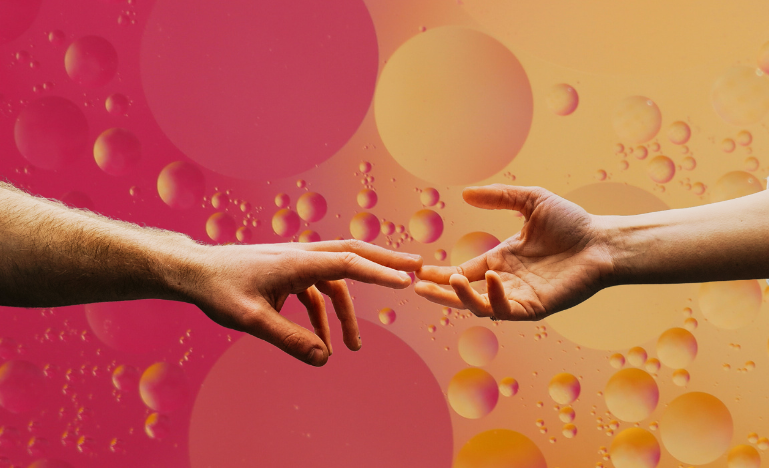Students for equity
Lessons in patience, humility, and advocacy for equity-seeking groups.

Education can be a long lesson in humility, particularly when deconstructing our colonial systems.
“The reality is that our Indigenous legal orders have been in existence since time immemorial,” says Esentsei Staats Pangowish, a doctoral student at Osgoode Hall. “Understand that the timeline does not work on your timeline.”
Specifically, she says that lawyers must stop focusing on what she calls “colonial time” or “the idea that we must do things quickly and efficiently instead of correctly and spending the time that is necessary in order to build those relationships.”
Pangowish, who is Haudenosaunee and Anishnaabekwe, recalls a recent conversation with someone who insisted on completing a matter in 60 minutes. Her response was, “No, that’s not how relationship-building works in order to ensure that, as an Indigenous community, you can understand us or have our best interest at heart.”
“The goal as an Anishinaabekwe woman is always consensus — and how can you have full consensus in an hour?”
The bottom line is that patience and a willingness to learn are essential for lawyers working with Indigenous groups. For one, she says people often engage with Indigenous communities as if they don’t have a social hierarchy. Pangowish emphasizes that working with Indigenous communities ought to begin with meetings with the elders.
“And in a meeting with the elders, the elders call the shots,” she says. “They’ll let you know whether you are meeting for 10 minutes or 10 hours. You have to be okay with that.”
According to Celeste Haldane, K.C., the chief commissioner of the BC Treaty Commission, before reaching out Indigenous communities, it’s essential to do some research about who they are and their language, where they’re located and where their traditional territory is. “That goes a long way to build trust and understanding,” says Haldane, who is Musqueam (Coast Salish) and Metlakatla (Tsimshian).
Then it’s crucial to foster the relationship through information exchange, she says. “Understand that there is a lot more that you have to learn. Be open to that learning and be receptive to that learning as well.”
Khalid Janmohamed, the director of legal clinic programs at the Lincoln Alexander School of Law at Toronto Metropolitan University, has a similar message of humility for those working with other equity-deserving groups.
“Clients and communities have a lot of expertise. They are experts on their own lived experiences, and they have expertise on the issues that they are facing,” he says. “Traditional law practice can sometimes involve assumptions and biases about clients’ capacities, how they should be involved in their cases, or what their goals should be. Sometimes, that can perpetuate oppression that clients have already experienced.”
To counter this, Janmohamed says that TMU’s new student legal clinic aims to infuse its legal practice with anti-colonial and anti-racist ways of thinking and working.
The clinic, which consists of two staff lawyers and eight second-year law students, will focus on housing and social assistance.
According to Janmohamed, the objective is to engage with clients, communities, and each other in holistic, collaborative, and less hierarchical ways, emphasizing empathy and responsiveness to the needs and lived experiences of all.
Lawyers and law students should also realize that structural problems are inherent within the legal system, he adds.
The clinic aims to develop an anti-oppressive and trauma-informed approach and practice that reimagines and critically examines people's roles in legal systems.
“That can be a way that we can work with equity-seeking communities in a much more effective and meaningful way.”
Haldane says that lawyers and law students should consider that there is racism built into Canada’s legal system and inherent within our laws.
“If you think about how laws were created, they are colonial, and they were not constructed to benefit Indigenous people. They were utilized as weapons,” she says. “When settlement was happening in Canada, laws and policies and legislation were used against Indigenous people to remove them from their land and territories so settlement could occur.”
All lawyers and law students should position themselves as advocates for equity-deserving groups, says Haldane.
“Every lawyer and law student has a voice and can amplify and support Indigenous voices as we continue to move through reconciliation processes,” she adds.
A recent example is a group of law students at the University of Manitoba’s L. Kerry Vickar Business Law Clinic who recently submitted a letter supporting increased Indigenous language programming for the Aboriginal Peoples Television Network’s application to the Canadian Radio-television and Telecommunications Commission.
“Everyone deserves to have programming in their own languages to tell their own stories,” says Lisa Haydey, a second-year law student at the University of Manitoba, adding that showing support is a crucial step towards reconciliation.
Pangowish, whose research is centred around Indigenous sovereignty, says that lawyers must also acknowledge that Canada is essentially “a colonial state on invaded lands and territories.”
“Canada relies on the doctrine of discovery that we acknowledge is racist. Yet the entire state and its legal systems and its policies rely on that to be here,” she says.
“As a settler, you need to hold your government accountable. You need to hold your laws, your policies, your banking institutions, your housing corporations, all of them responsible for the injustice and how they feed into the systems of injustice,” says Pangowish. “Indigenous people’s rights are human rights.”


